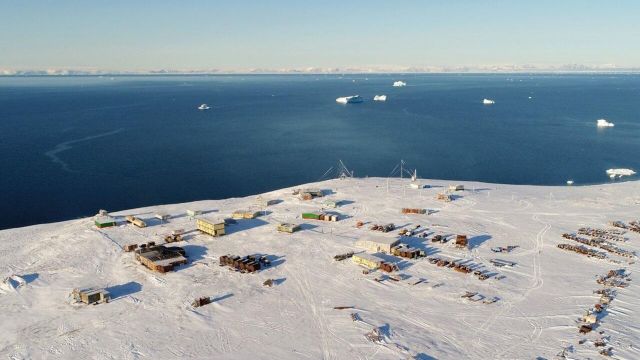The technology allows real-time assessment of the situation within a radius of 100 km, the press service of the Platform of the National Technology Initiative reported
MOSCOW, June 28. /tass/. Russian specialists have developed a technology for ice reconnaissance using a drone and neural networks, which allows real-time assessment of the situation within a radius of 100 km. The new campaign is up to 20 times more economical than traditional methods of reconnaissance using aviation, the press service of the National Technology Initiative (NTI) Platform told TASS on Tuesday.
The ice reconnaissance complex involves launching a drone equipped with radars from the deck of an icebreaker. It transmits information in real time to a remote control that processes images. The program evaluates parameters such as age, thickness, compression of ice and other characteristics. Neural networks at its core are able not only to inform the captain about the characteristics of the ice, but also to predict changes in the situation for several hours ahead, offering the optimal route.
"In comparison with traditional aviation intelligence, the complex allows you to receive data more quickly and requires up to 20 times less financial costs. At the same time, the drone can operate in cloudy conditions. Unlike the satellite reconnaissance method, the new approach assumes independence from satellite systems, access to the foreign segment of which may be organic in the future, and also [provides] high image acquisition speed and detail up to 30 cm," the press service of the NTI Platform clarified to TASS.
The drone developed at MIPT can stay in the air for more than four hours and take on board a payload of up to 15 kg. According to the authors, the radius of its movements can reach 100 km.
"The elements of the complex have been repeatedly tested in Arctic conditions, work is currently underway to give the complex a final appearance and testing in real operating conditions. It is expected that its first models will appear on Russian icebreakers in 2024," representatives of the NTI Platform also noted.

